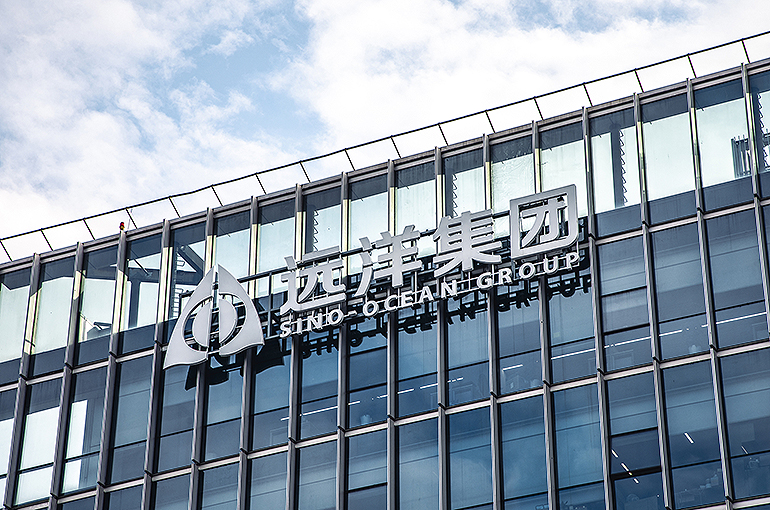Sino-Ocean Defaults on Bond Interest Payment, Braces for Up to USD2.7 Billion in First-Half Losses

(Yicai) Aug. 16 -- Sino-Ocean Group has become the latest Chinese developer to default on bond interest payments, after Country Garden did so last week, and is anticipating running up losses of as much as CNY20 billion (USD2.7 billion) in the first half as a lackluster real estate market hammers sales.
Sino-Ocean was unable to pay the USD20.94 million (CNY150 million) in interest that was due on a USD700 million bond on Aug. 13, the Shanghai-based firm said on Aug. 14. Trading of the bond, which has a 6 percent coupon rate and matures in 2024, has now been suspended on the Hong Kong stock exchange.
Sino-Ocean is requesting a waiver from holders of the bond and has received enough votes in support, it said. The company has also asked to push back the deadline on a USD2 billion bond until Sept. 1, but this was not accepted.
Sino-Ocean has been hit hard by a sluggish real estate market. Sales slumped 17 percent in the first six months from the same period last year to CNY35.7 billion (USD4.9 billion). It shifted just 16,000 properties over the period with lower gross profit margin.
As a result, the developer expects to incur losses of between CNY17 billion (USD2.3 billion) and CNY20 billion in the six months ended June 30, it said the same day. This is a widening of over 15 times from the same period last year. It also wipes out all the net profit earned between 2016 and 2021.
Slow sales, a lack of cash flow, tighter financing requirements and increased asset disposal have all created great uncertainty, Sino-Ocean said. The developer is having problems raising funds for projects and is unable to seek refinancing through bonds. But the company vows not to default and is actively seeking solutions to resolve its debt crisis.
As of the end of 2022, Sino-Ocean had assets of CNY314.6 billion (USD43.1 billion), liabilities of CNY222.5 billion and interest-bearing debts of CNY109.4 billion. The firm still claims to have enough assets to cover its debts.




